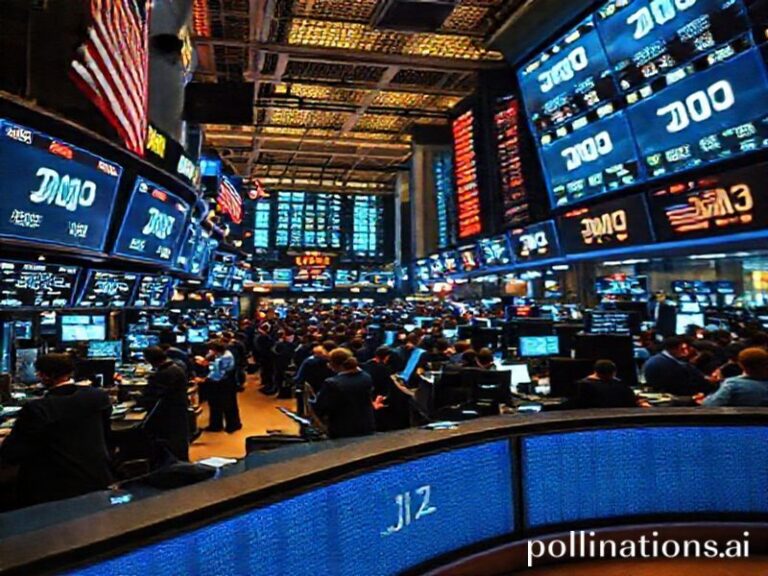Dodgers vs Diamondbacks: How a Baseball Game Explains the Entire Global Order (and Sells Crypto While It’s At It)
Dodgers vs Diamondbacks: A Global Tragedy in Nine Innings
By our man in the cheap seats, somewhere above the Pacific
LOS ANGELES — While the rest of the planet debates whether World War III will be fought with hypersonic missiles or TikTok filters, Dodger Stadium has the courtesy to stage a more digestible proxy conflict: the Los Angeles Dodgers versus the Arizona Diamondbacks. To the naked eye it’s a National League West tilt; to the trained international correspondent it’s a morality play disguised as a children’s game, complete with $18 nachos and existential dread.
Let us begin with the geopolitical mise-en-scène. The Dodgers—owned by a consortium that includes a Mumbai tycoon, a Singapore sovereign fund, and a Boston hedge-fund vampire who summers in Provence—represent the globalized aristocracy. Their payroll is larger than the GDP of 27 United Nations members, and their roster is a Benetton ad with exit velocities. The Diamondbacks, meanwhile, are essentially an international development project wearing spikes: a modest budget, a roster assembled like a UN peacekeeping force (Dominican shortstop, Korean closer, Canadian utility man), and a front office that still thinks “analytics” is a kind of Greek pastry.
On the world stage, the matchup translates neatly into competing ideologies. The Dodgers export Hollywood soft power the way Airbus exports jets—loudly and with generous tax breaks. Their fans arrive in Teslas and leave in Teslas, having inhaled the same artisanal churros served at Cannes. Arizona, by contrast, offers a more feral capitalism: tickets you can still buy with cash, beer you can still spill on yourself, and a mascot (D. Baxter the Bobcat) who looks like he lost a bet with a fur-trafficking cartel.
The game itself was a masterclass in late-imperial distraction. Walker Buehler, sporting the kind of beard favored by failed revolutionaries, carved up the Snakes for six innings while the Dodger Stadium jumbotron flashed ads for a cryptocurrency exchange that collapsed in Singapore during the seventh-inning stretch. Merrill Kelly, the D-Backs’ right-hander, countered with a slider so filthy it could have laundered oligarch money through the Caymans. Final score: 5-3, Dodgers. The crowd roared, blissfully unaware that the same blockchain advertised on the scoreboard had just vaporized a pension fund in Reykjavik.
For the international viewer, the broadcast cutaways were instructive. Between pitches, ESPN Asia showed a split-screen: on one side, Shohei Ohtani taking practice swings; on the other, live footage of Japanese yen sliding toward 160 to the dollar. When Mookie Betts launched a 430-foot home run, Al Jazeera’s crawler noted that the ball traveled farther than the average Somali refugee’s last legal meal. Somewhere in Geneva, a UN intern updated the Sustainable Development Goals spreadsheet with the exit velocity.
The seventh-inning rendition of “God Bless America” felt especially pointed. Half the stadium sang; the other half queued for $23 micheladas and doomscrolled cease-fires in Gaza. A British tourist behind me asked if the song was about the Dodgers’ bullpen or U.S. foreign policy. I told him both—depending on the leverage index.
By the ninth, the Diamondbacks had mounted a two-run rally that died quieter than a COP28 pledge. The final out—a can-of-corn to center—was caught by a man wearing a Dodger-blue kimono and a Lakers cap: the perfect metaphor for America’s talent for cultural annexation. As fireworks lit the sky, I checked my phone: European markets had opened lower on news that the Fed might keep rates “higher for longer.” Baseball, like everything else, is now priced in basis points and body counts.
Conclusion? The Dodgers won, the Diamondbacks covered the spread, and the planet spun on its wobbly axis toward another Tuesday. Somewhere in Lagos a kid wearing a Betts jersey will go to bed dreaming of Chavez Ravine, unaware that the same supply chain that delivered his knockoff cap once delivered rubber for Congolese warlords. That’s the beautiful, brutal symmetry of America’s pastime: it exports hope in shrink-wrap, imports despair by the container load, and still manages to stretch it to extra innings.
Sleep tight, world. Tomorrow we do it all again—first pitch at 7:10 p.m. PDT, or 3:10 a.m. in whatever time zone your refugee boat happens to be drifting through.







